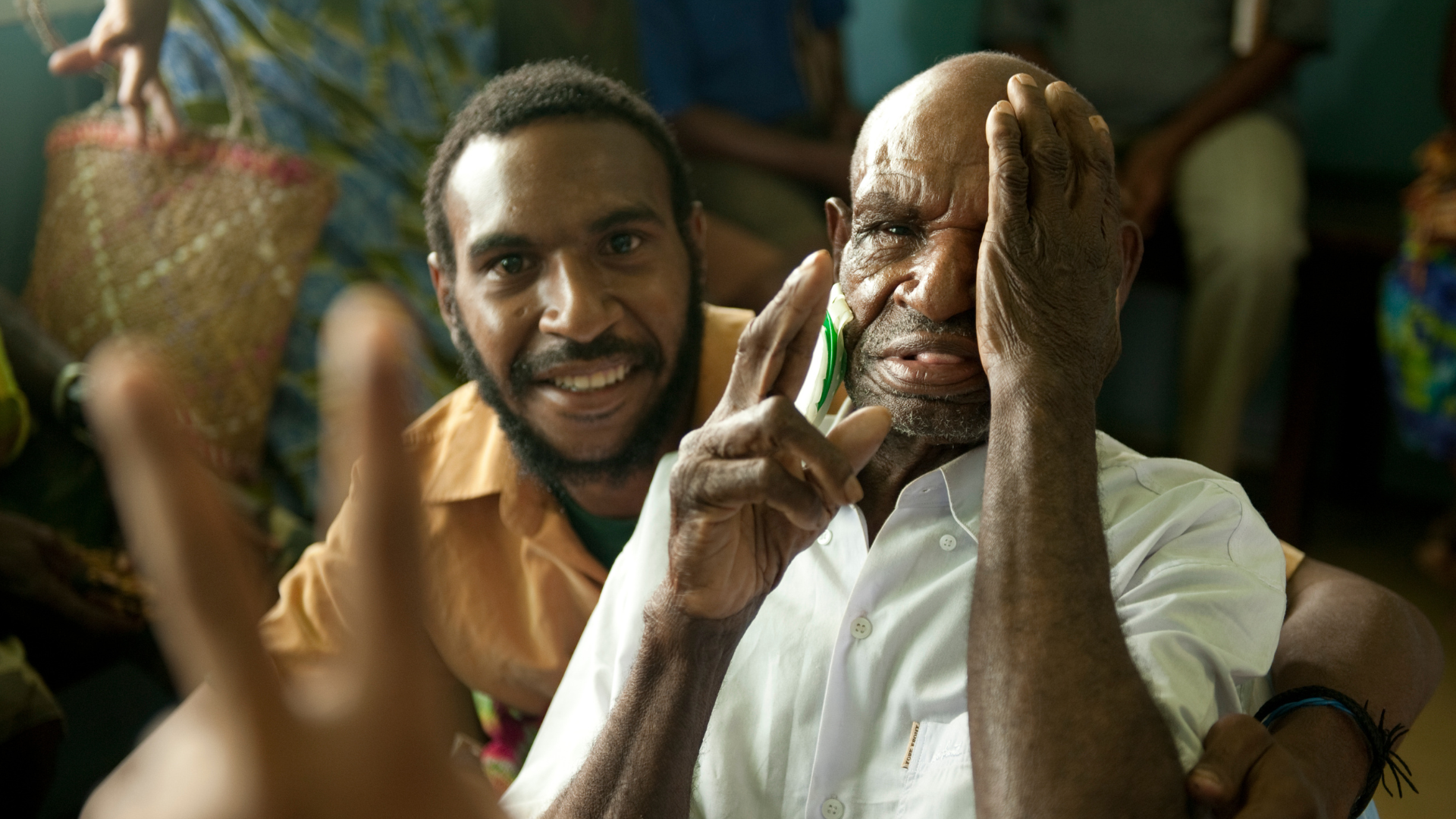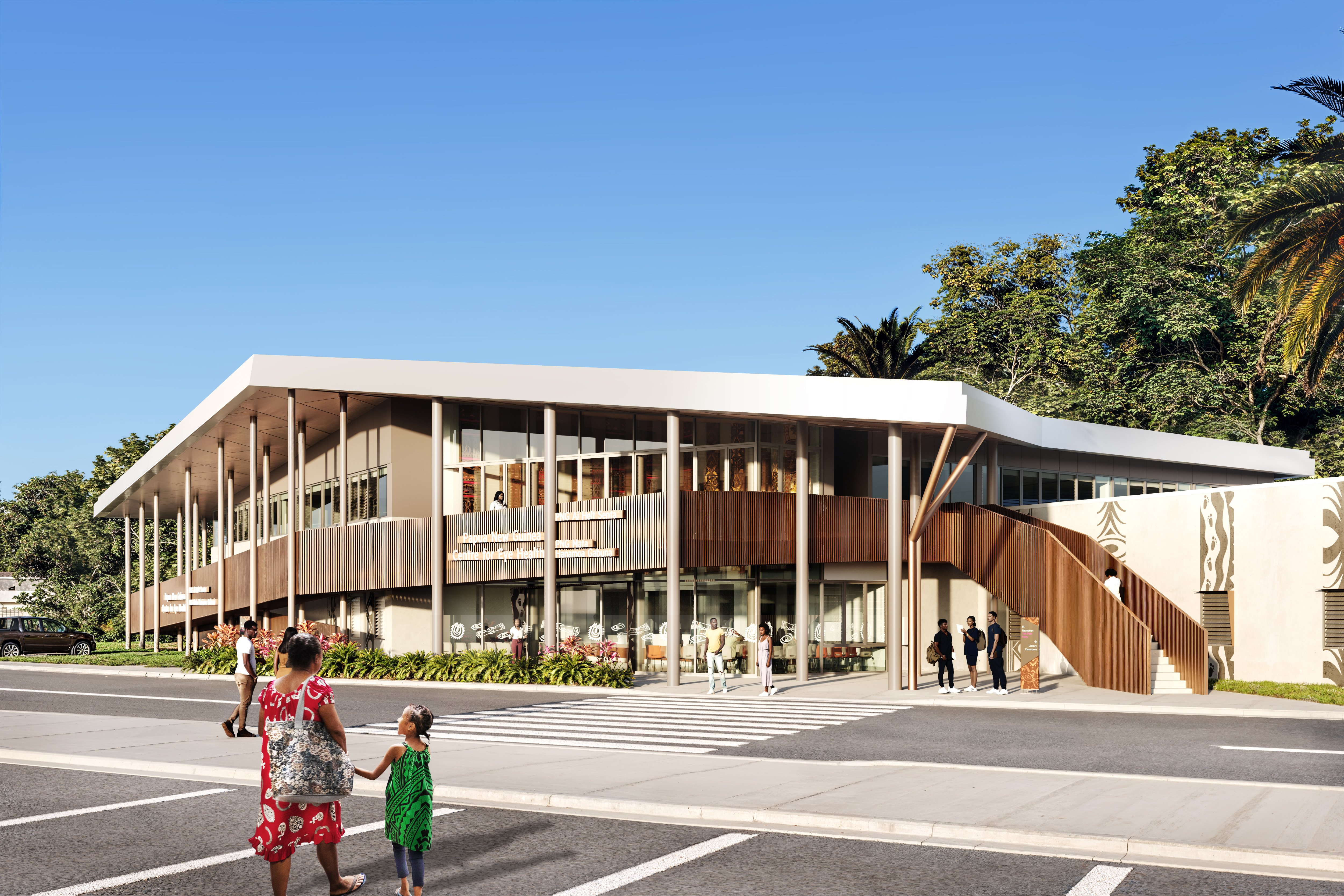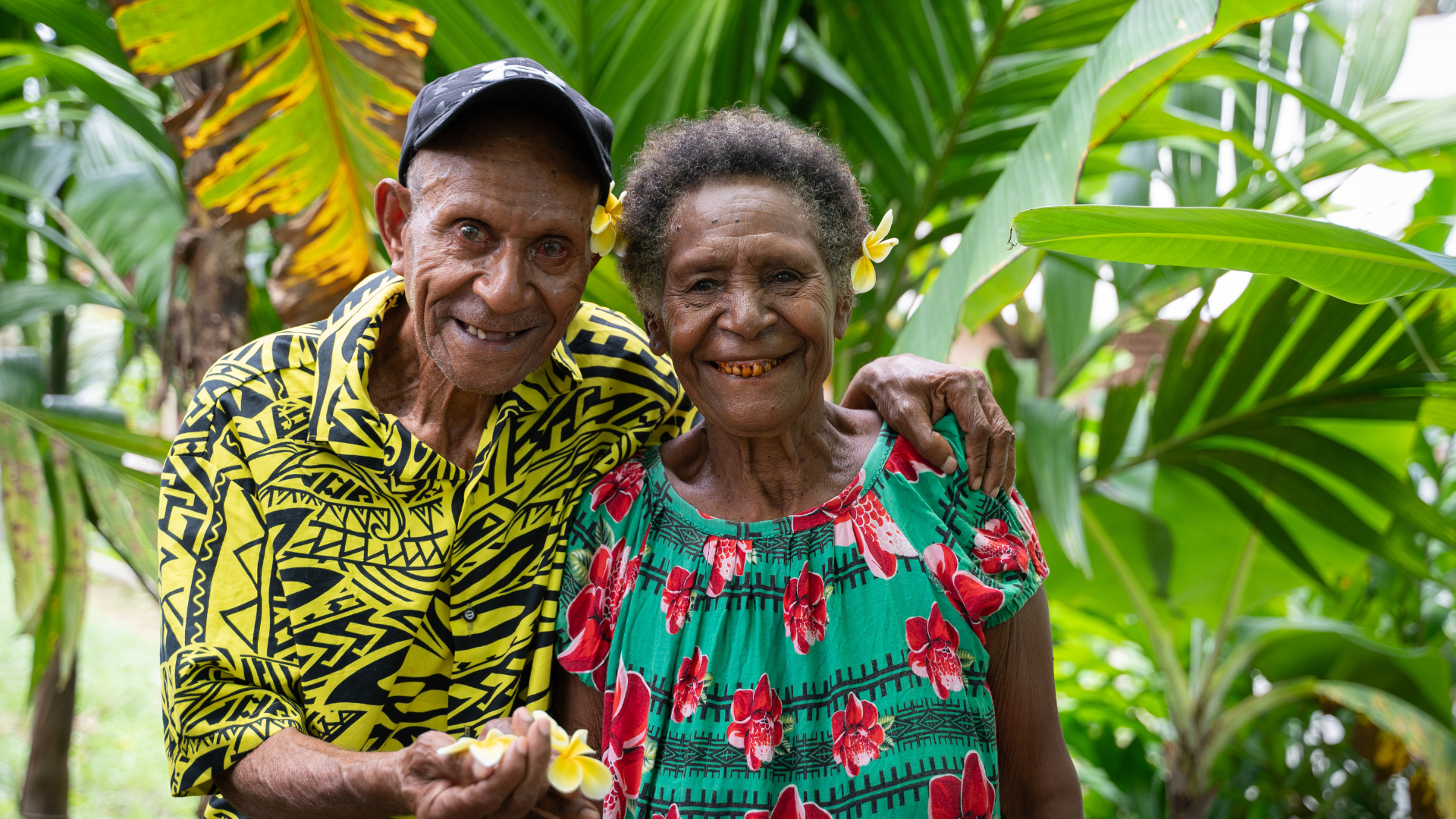Eye Health in Papua New Guinea (PNG)
Papua New Guinea (PNG) faces a significant eye health crisis, with over 5% of the population aged 50 years and older living with blindness. Around 90% of these cases are treatable or preventable, with untreated cataract being the leading cause of blindness. The health system in PNG is profoundly fragile. Deteriorating health infrastructure, inadequate investment, limited availability of medical supplies, insufficient health workers, and a high prevalence of poverty are significant ongoing challenges to the delivery of basic health services including eye health.
Inequitable access to eye care remains a major challenge, particularly for rural and remote populations, women and girls, people living with disabilities, and the elderly.
Alarmingly, 61% of blindness in PNG affects women, who face additional barriers to accessing eye health services. These include a lack of awareness, cultural and social constraints, insufficient resources, and fear of seeking medical treatment. Blindness rates among women are highest in the Highlands, where many are unaware that cataract treatment is even possible.

Our work in PNG
The Fred Hollows Foundation, in partnership with The Fred Hollows Foundation New Zealand, has built strong and long-standing relationships in PNG. Since 2002, we have partnered with the National Department of Health (NDoH) to deliver eye health solutions across the country.
Operating out of Madang and Port Moresby, our focus is on training eye doctors and nurses to address the eye health workforce gap. To date, we have supported the specialist training of six eye doctors and 130 eye nurses and clinicians. At the Madang Eye Clinic alone, approximately 1,200 eye surgeries are performed each year.
We also support national and provincial leadership in the development of eye health policies and plans, contributing to the appointment of a National Eye Care Coordinator. These efforts aim to strengthen local eye health services in PNG over time.
The PNG Eye Health System Strengthening Program
To further support eye health system strengthening in PNG, The Foundation, together with local partners the National Department of Health (NDoH), the Prevention of Blindness Committee (PBL), Divine Word University (DWU), Madang Provincial Health Authority, the University of PNG (UPNG) and Port Moresby General Hospital - have developed the PNG Eye Health System Strengthening Program. This program seeks to build a quality eye health workforce, deliver integrated primary and secondary eye care services, and foster strong leadership in eye health at both national and sub-national levels.
A critical component of this program is the construction of the PNG Centre for Eye Health in Port Moresby. This $33 million specialist facility will train eye doctors, nurses, and optometrists, serving as a hub for eye care workforce training, service delivery, outreach, and research. By increasing the National workforce, we will improve access to services and eye health outcomes.
The Centre will:
- Train approximately 10 eye nurses per year through the Advanced Diploma in Eye Care (ADEC) program, doubling the annual number of eye nurse graduates.
- Aim to graduate two eye doctors each year by 2030.
- Provide specialised eye care services, including PNG’s first dedicated diabetic retinopathy clinic and paediatric ophthalmology services. In partnership with Provincial Health Authorities, the Centre will also support the development of eye care services across all provinces, ensuring that marginalised and remote communities receive the care they need.
The Centre has been designed with sustainability in mind, featuring climate-proofing, a solar power system, and a rainwater catchment system, ensuring reliable and efficient operations well into the future.
The Centre has been generously supported by the Governments of Australia (DFAT and ANCP) and New Zealand (MFAT).

In 2023, The Foundation and its partners made great progress in key strategic areas in Australasia:
17,103
People screened.
3,187
Eye operations and treatments performed including cataract operations, surgeries to treat trachoma, diabetic retinopathy treatments and other sight saving or improving interventions.
38
People treated with antibiotics for trachoma.
2,034
Pairs of glasses distributed.
450
People trained including community health workers and clinic support staff.
4,983
School children and community members educated in eye health and sanitation.
The countries in Australasia that The Foundation works in are Australia, Timor-Leste, Papua New Guinea, Solomon Islands and Nauru.
